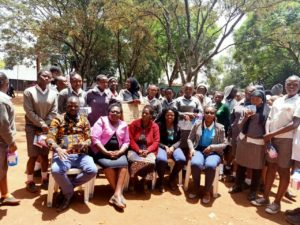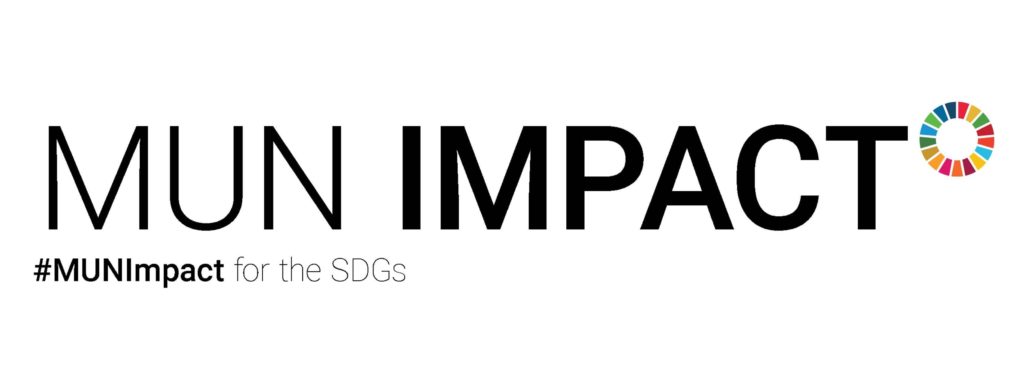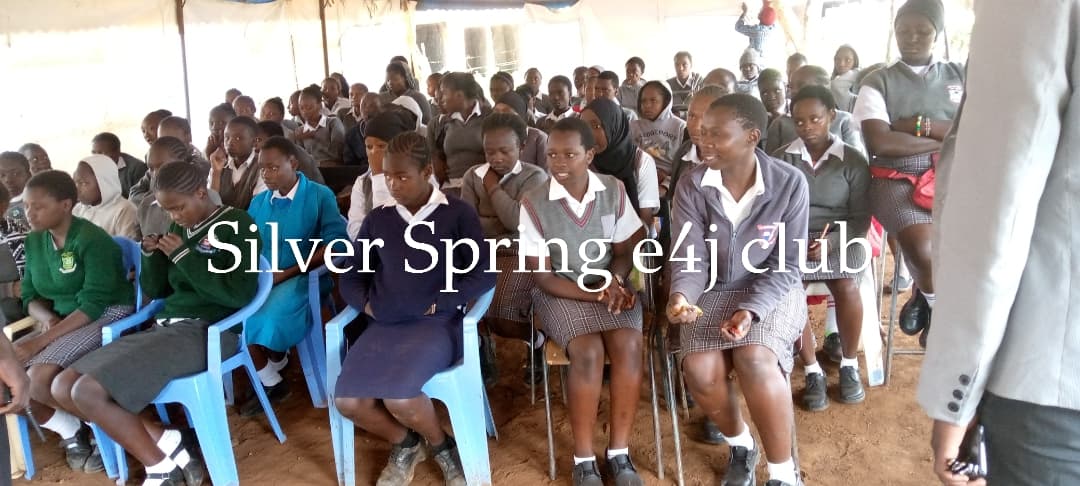MUN Impact is honored to be partnered with UNODC’s innovative Education for Justice initiative. E4J consultant (former MUN delegate, OMUN Director and current MUN Impact Board member) Kudzai Mukaratirwa and the UNODC ROEA Youth Programme spells out how YOU can start a Justice club at your school or youth group. We’ll be featuring the work being done in Kenya to promote the idea of Justice Clubs. We hope you will be inspired to take similar steps at your school.
___________
By Kudzai Mukaratirwa and UNODC’s ROEA Youth Programme
Crime, justice and the rule of law are part of our lives and affect us on a daily basis. People, and especially youth, are ever more concerned about these issues and, in response, E4J has set out to generate educational resources (insert hyperlink to E4J secondary level webpage) and initiatives on these issues at the secondary education level. The resources are developed for teachers and students to learn, engage and act on key issues surrounding crime, justice and the rule of law in our societies.

The E4J Justice Clubs have been launched pursuant of the Education for Justice Initiative objectives and are a creative way for students to take innovative action around these issues. Starting a Justice Club is easy for any school and this guide is here to assist with the foundational aspects of establishing a Justice Club. As a student you want to join the right club that fits your personality as well that will develop new skills within you. You want to join a club that will be fun but also help you further on in the future.
The great thing about the #E4J justice clubs is that it doesn’t fit one particular personality type, whatever area you are gifted in be it music or sports you can utilise those gifts to create activities that the justice clubs and your community as a whole can benefit and learn from. In addition, you have the opportunity to actively work towards fulfilling the 2030 SDG Agenda in a meaningful and impactful way.
Establishing a Justice Club
Structure and Work Plan for E4J Justice Clubs
The E4J initiative aims to equip youth with the knowledge and tools to cultivate a culture of lawfulness, enhance access to justice and build skills for community crime prevention. In order to establish E4J youth cooperation the UNODC Youth has determined the establishment of Justice Clubs will guarantee that E4J initiatives will lead to youth-led actions. The Justice Clubs will build on the 21st century skills they will be equipped with through E4J. These skills include teamwork, critical and creative thinking, analytical reasoning, and problem solving. These will ensure the effective establishment and running of the Justice Clubs.
Justice Club Structure
All clubs will all share the same structure and objectives. Where they will differ is in the activities, they choose to carry out which will be contextual to their school and community environment to ensure that there is participatory engagement rather than an instructional methodology.
Objectives
- Promoting justice, integrity and a culture of lawfulness;
- Preventing corruption;
- Promote inclusion, equality and unity;
- Ensuring advancement of the sustainable development goals;
- Preventing crime.
Structure
Justice Clubs will follow a simple structure that can be replicated by other students within educational institutions. They will be student-led clubs that will benefit from teacher support and guidance to navigate institutional structures and polices. The club structure is as follows:
High School
| Patron | Faculty Member (male or female or both) |
| Chairperson | Form 3 student (flexible) |
| Deputy chairperson | Form 2 student (flexible) |
| Secretary | Form 3 student (flexible) |
| Advisor | Form 4 student (one male one female in co-ed institutions) |
| Members | All high school students |
Clubs are also advised to have activity leaders in this way club leaders are not overstretched. The most effective management system Justice Clubs have is having club leaders and activity leaders. The club leaders are responsible for the operation of the club and ensuring activities are on track and the operational management of the club is maintained. Activity leaders are responsible for the various activities and building a small team within the club membership. Members can choose which activities they would like to be involved in based on their interests and skills. Members can also choose to be responsible for other aspects of the club such as reporting, writing blogs, creating content for social media (photos, videos, etc.).
Constitution
The Justice Clubs are to be established initially by the students with the support of faculty member. Each club will be required to draft a constitution that contains the following:
- The objectives of the Justice Club;
- How the club will operate;
- The election procedure for Executive members;
- The role of each Executive member;
- The principles of the Justice Club;
- Code of Conduct for all members;
- Regulations regarding registration as an association/club within the institution.
The constitution will regulate the operations and affairs of the club and ensure fairness, inclusive representation and participation and transparency of the club. All members including the executive will be accountable to the code of conduct of the Justice Club.
Activities
The activities of the club will primarily focus on addressing and resolving challenges within the school related to the mandates of E4J. Clubs are free to be as creative as they want and refer to Justice Club report and E4J website (insert link to multimedia page on E4J site) for inspiration. From Model United Nations and Hackathons to student led outreaches, poetry, music videos and workshops/events; we encourage CREATIVITY! In addition to, where possible, the surrounding community as well. From initial student consultations these include and are not limited to:
- Role of youth in society and the school
- Mentorship programmes
- Solutions to crime
- Root causes of crime
- Enhancing quality of education;
- Substance abuse;
- Extra-judicial killings;
- Stealing;
- Bullying;
- Corruption;
- Gender based violence;
- Transparency;
- Sustainable development goal alignment.
In order to support and promote the activities of the clubs as well as assist other schools with guidance on how to set up and run their own clubs each club will need to report on its termly activities. In this way Justice Clubs can grow and collaborate through the Justice Club Network. In addition, the UNODC will be able to track, assess and support the needs of the Justice Club Network through its expertise and other means. This includes:
- Providing physical and digital E4J resources and materials;
- Building connections between schools and UN bodies, NGOs and CBOs;
- Creating platforms for Justice Clubs to engage with government structures;
- Creating platforms to showcase the outcomes of the Justice Clubs;
- Recruiting mentors from the local community as role models for the students.
The key outcomes of Justice Club activities include but are not limited to:
- Community awareness and support of E4J;
- Platform for dialogue and debates; follow-through and implementation of solutions;
- Community projects – Justice Clubs as platforms for organization of community activities;
- Reporting on transparency (preventing corruption) during student elections and the awarding of leadership positions, scholarships and financial aid;
- E4J champions recognized by the clubs who may be students, teachers or mentors;
- Networking platforms for Justice Clubs to engage with other Justice Clubs;
- Peaceful campaigns and awareness raising, especially with social media;
- Peer support and mental health sensitization;
- Faculty engagement supporting E4J student-led initiatives.
Justice Clubs Time Frames, Activities and Reporting
Justice Clubs will operate on a termly basis. Justice Clubs will write a work plan identifying their objectives and activities under the E4J mandate areas as well as their SDG alignment. The reporting template to create this workplan can be found here (insert embedded link to template).
Justice Clubs will also be encouraged to write blogs and submit them to the Justice Club Network based at Aga Khan Academy. The blog template for the initial blog can be found here (insert embedded link to MUN Impact blog template).
Justice Clubs are encouraged to have a yearly workplan that divides its activities on a termly basis. They are also encouraged to reach out to other clubs in the Justice Club Network to support and collaborate with each other’s activities and events. This will assist the UNODC in keeping up to date with the clubs and supporting them as much as possible!
Useful Advice
Like so many other clubs you must have a few things checked off before you begin:
- Be passionate about whatever club you are joining – Clubs are going to take a load of your time so you must be ready to sacrifice a lot of hours to achieve whatever your goal is. At the justice clubs, you will have project you want to complete and that will take a lot of dedication and commitment, so make sure you and your team are passionate about what your goal is.
- Have a plan- There is a saying “if you fail to plan you plan to fail ” have numerous meetings where you plan what exactly your goal is and how you plan to achieve it. Set realistic timelines and make sure everyone in your club has a role to play and is aware of all the deadlines.
- Meet regularly- Once you have defined your goal and mission, meet regularly in person to discuss the progress and any accomplishments. You can also use these meeting times to engage in fun activities to keep the morale of the group high!
All in all, the justice club is a very fun and innovative club that allows us as youth to take control of our future and implement that change, we want to see in our world!
For further information: Please contact kudzai.mukaratirwa@un.org


